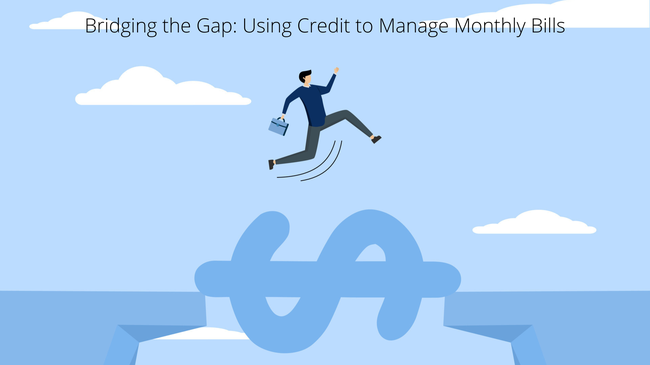Introduction
In a rapidly changing global economy, the timeless challenge of balancing the books remains. Every month, as bills roll in, households across the world grapple with the arithmetic of incomes and outgoings. Yet, in today's digital age, where instant gratification often trumps financial prudence, many find themselves in the tight grip of mounting expenses. Rising costs in sectors like housing, education, and healthcare have only added fuel to this financial fire.
Enter credit — the financial tool that promises relief. It extends a bridge over the chasm between immediate needs and available funds, allowing us to navigate the monthly onslaught of bills. However, while credit can be a formidable ally, ensuring one's financial fluidity, it can also become a formidable adversary when misused. The lure of 'spend now, pay later' can be seductive, but it's a dance that requires finesse and understanding. This article aims to shed light on this dynamic interplay between credit and monthly bill management, offering insights, guidelines, and a deeper understanding of the financial currents that influence our daily lives.
Development
What is Debt?
Debt is essentially money that one person owes to another. It's an agreement where one party lends money to another with the expectation that it will be paid back, usually with interest. While debt can be a useful tool, especially when used strategically (like a mortgage to buy a home), it can also be a burden if not managed properly.
How Debt Can Affect Your Life?
Financial Impact
Continued accumulation of debt can lead to higher interest payments, potential penalties, and a strained budget.
Credit Score Implications
Poor debt management can negatively impact your credit score, affecting future borrowing capacities and interest rates.
Mental and Emotional Strain
Constantly worrying about debt can lead to stress, anxiety, and even depression.
Lifestyle Limitations
Excessive debt can limit one's ability to make purchases, travel, or even invest in future opportunities.
What Should a Person Do in the Face of Debt?
Assessment
Understand the total amount owed, the interest rates, and the minimum payments.
Prioritize
Address high-interest debts first to reduce the overall financial burden.
Budgeting
Create a budget that factors in debt repayment while ensuring basic needs are met.
Seek Professional Advice
Financial advisors or credit counselors can provide strategies tailored to individual circumstances.
Patterns, Tendencies, and Future
Patterns
Rising Consumer Debt
Many households have seen a consistent rise in debt levels, especially with easily accessible credit cards and online loans.
Tendencies
Shift Towards Digital Lending Platforms
With technological advancements, there has been a surge in online lending platforms offering quick loans.
Preference for Flexible Repayment Plans
Consumers are gravitating towards credit options that offer flexibility in repayment, allowing them to manage their finances more efficiently.
Future
Integration of AI in Debt Management
Artificial Intelligence may soon provide tailored advice on managing and repaying debt.
Evolution of Credit Scoring
Traditional credit scores might evolve to factor in more personalized elements, providing a clearer picture of an individual's financial behavior.
Advices/Tips
Use Credit Wisely
Consider credit as a tool, not a crutch. Only borrow what you can repay.
Emergency Fund
Establish an emergency fund to avoid relying on credit for unexpected expenses.
Stay Informed
Regularly check your credit report for discrepancies and understand your credit score.
Limit Unnecessary Expenditure
Differentiate between needs and wants. This can help in keeping debts at bay.
Conclusion
Credit, in its many forms, has been a cornerstone of our financial systems for centuries. In today's complex socio-economic environment, its role in bridging the gap between our aspirations and our realities is more pronounced than ever. Whether it's ensuring that our homes are heated, our children educated, or our health needs met, credit often silently underpins many facets of our daily lives.
Yet, with great power comes great responsibility. Using credit to manage monthly bills is not just a financial decision; it's a life decision. Missteps can ripple across years, affecting not just our bank balances but our quality of life, peace of mind, and even our relationships. The key lies in informed, judicious usage. Each decision to use credit should be accompanied by a robust plan to repay, a deep understanding of the terms, and an awareness of its potential long-term impacts.
As we look ahead, with technological advancements promising smarter credit solutions and more personalized financial products, it becomes even more crucial to be grounded in financial literacy. The future might see AI-driven credit advice or even more flexible repayment structures. But the core principles remain unchanged: understanding, prudence, and responsibility.
In closing, while credit is an incredibly potent tool in managing monthly bills, its true power lies in the hands of its user. With knowledge as our compass and discipline as our guide, we can navigate the often-turbulent seas of personal finance and chart a course toward a secure, prosperous future.

